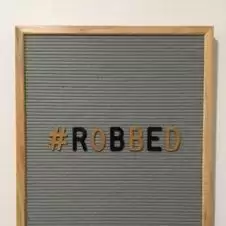-
Welcome to Celiac.com!
You have found your celiac tribe! Join us and ask questions in our forum, share your story, and connect with others.
-
Celiac.com Sponsor (A1):
Celiac.com Sponsor (A1-M):
-
Get Celiac.com Updates:Support Our Content
gluten-free In Korea
-
Get Celiac.com Updates:Support Celiac.com:
-
Celiac.com Sponsor (A17):
Celiac.com Sponsor (A17):
Celiac.com Sponsors (A17-M):
-
Recent Activity
-
- Michelle Amirault-Packard replied to ChrisDun's topic in Post Diagnosis, Recovery & Treatment of Celiac Disease8
Intermittent Fatigue
Thank you for this information! -
- Jane07 replied to Jane07's topic in Celiac Disease Pre-Diagnosis, Testing & Symptoms2
any advice would be helpful
they gone down alot since my diagnosis . the ttg test was done in a hospital it still not in the normal range 2 yrs later. the last time went up by the one before a little. maybe it just takes more time really trying to be careful i need to look at everything i eat to make sure -
- lizzie42 posted a topic in Parents, Friends and Loved Ones of Celiacs0
Second child with Celia
After my 3 year old daughter's diagnosis, we all got tested. My 5 year old son also came back positive with number 12x the upper limit. We will confirm with another tTG and the other 2 tests in the panel. He has zero symptoms that I have noticed. Maybe occasionally vomiting. He does have asthma. He's kind of an a**hole sometimes but also he's... -
- CJF posted a topic in Traveling with Celiac Disease0
European travel with Celiac Disease
I'm heading to the UK for a vacation the end of this month on a tour with Road Scholar. I haven't been out of the US since my diagnosis so I'm a little concerned about exposure to gluten during my travels. Most of our meals are provided by the tour. Either the hotels we are staying at, or places we will visit. Road Scholar is aware of my dietary needs as... -
- RMJ replied to Jane07's topic in Celiac Disease Pre-Diagnosis, Testing & Symptoms2
any advice would be helpful
Were the two tests done by the same lab? Do the tests have the same normal ranges? Each test manufacturer uses their own system of units when reporting results. Have your results gone down at all since diagnosis? Are you sure you’re gluten free? Do you eat at restaurants? I would recommend that you take a really good look at your gluten free d...
-



Recommended Posts
Archived
This topic is now archived and is closed to further replies.